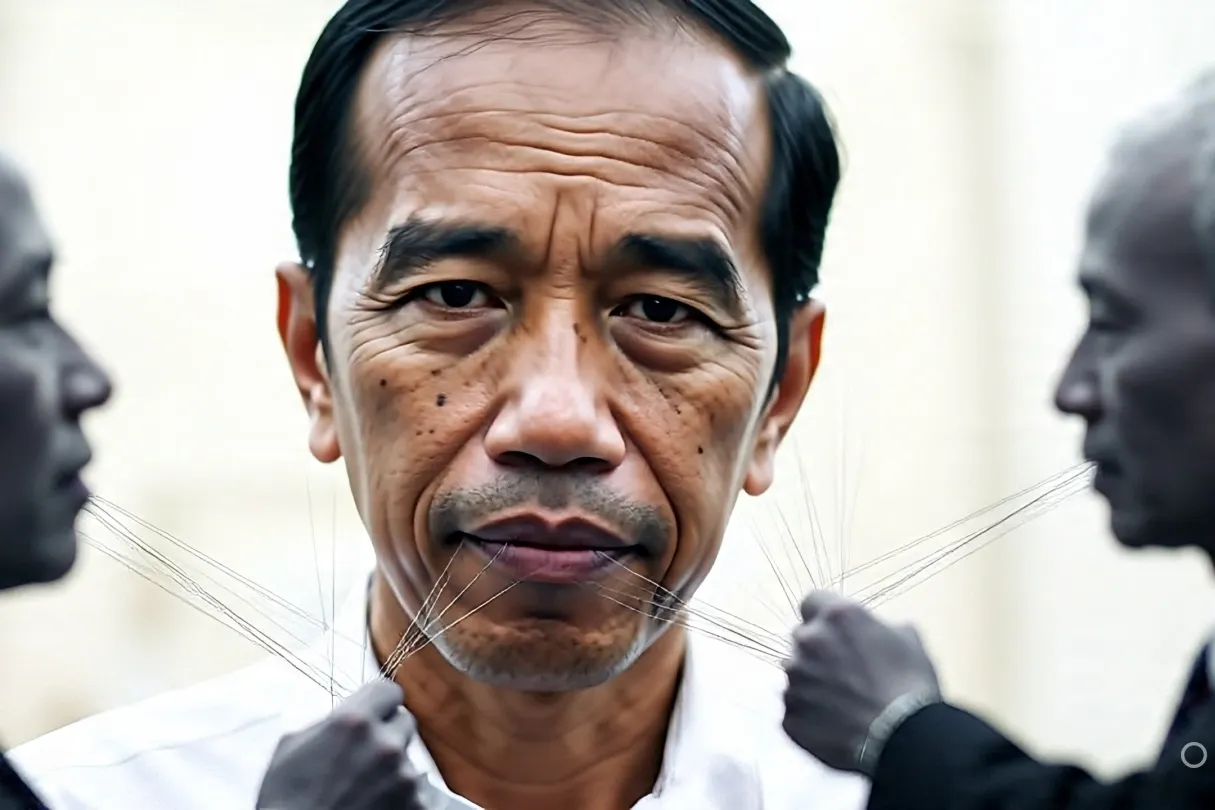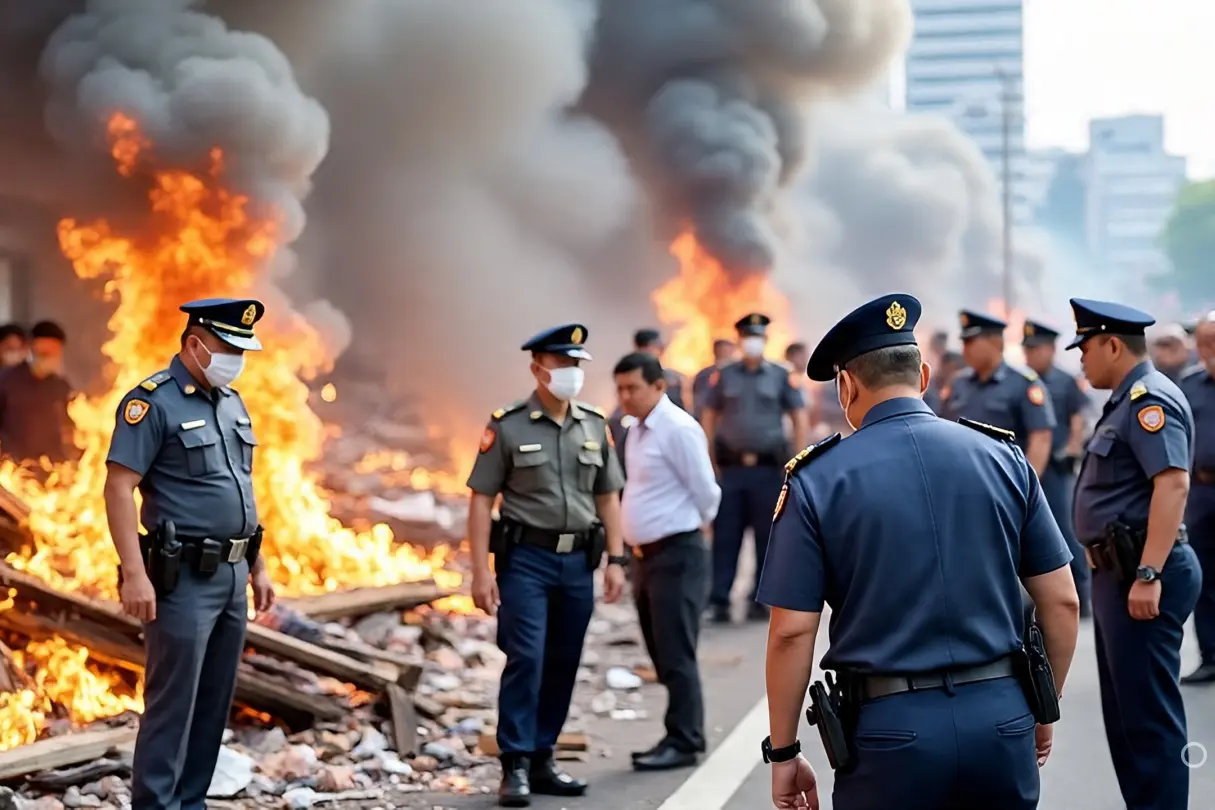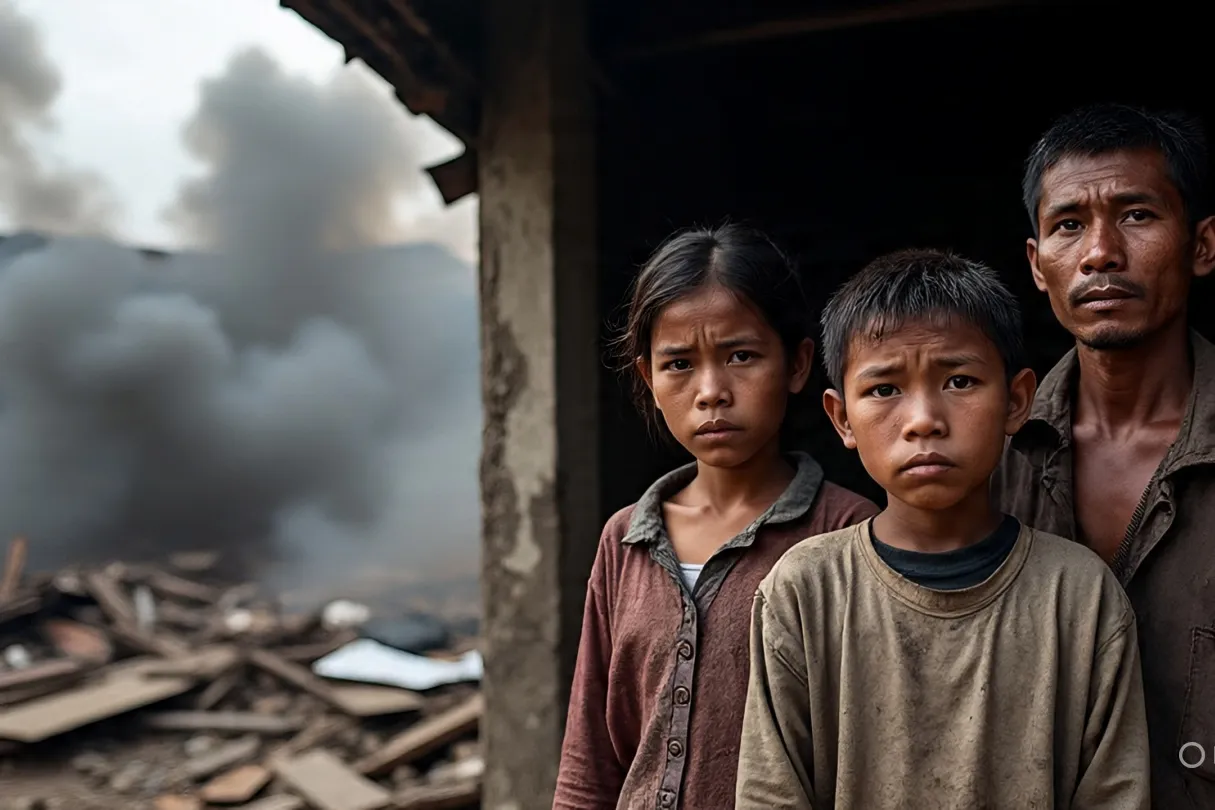In the chaotic, high-stakes world of Indonesian politics, few ideas have clung to the national consciousness quite like this one: President Joko Widodo—beloved by many, doubted by others—isn’t really in charge.
From the early days of his presidential campaigns to the twilight of his second term, a persistent theory has followed him like a shadow: that Jokowi is merely a puppet, propped up and steered by powerful forces behind the curtain. Some point fingers at the United States. Others accuse China. Still more blame elusive global business interests. Different names, same fear—that Indonesia’s leader serves a foreign agenda, not the will of the people.
It’s a story that strikes a nerve. At its core is a deep national fear of losing sovereignty, of history repeating itself through modern means. But where did this narrative begin? What has kept it alive all these years? And do Jokowi’s own policies add fuel to the fire?
We invite you to explore the political, cultural, and psychological roots that gave rise to one of the most talked-about conspiracies in modern Indonesia. We’ll unpack the anxieties it taps into, how critics interpret Jokowi’s decisions, and the powerful role of social media in keeping the myth alive.
Read on—as we peel back the layers of one of Indonesia’s most controversial political narratives. Because sometimes, the story behind the rumor says more than the rumor itself.
🔍 The Origins of an Outsider’s Myth
The “Jokowi puppet” narrative has its roots in the president’s unique political journey. Unlike many of his predecessors who came from military or elite political backgrounds, Jokowi was a furniture businessman who rose through the ranks of local government, serving as mayor of Surakarta and governor of Jakarta before his presidency. This outsider status was initially a strength, portraying him as a man of the people, untainted by the corrupt legacy of the old political establishment.
However, his rapid ascent and lack of a traditional power base also made him vulnerable to suspicion. For some, his success seemed too sudden, too improbable to have been achieved without the backing of powerful, hidden forces. His opponents and their supporters began to question who was truly pulling the strings.
- A Lack of Traditional Elitism: Jokowi’s humble background and his political party, the Indonesian Democratic Party of Struggle (PDI-P), led by former President Megawati Sukarnoputri, were seen by some as a sign that he lacked independent power. This made him a target for speculation that he was merely a front man for powerful political and business interests.
- The Perceived Absence of Ideology: Critics argue that Jokowi’s pragmatic, technocratic approach lacks a clear ideological framework. This perceived emptiness, to a conspiratorial mind, is a blank slate upon which foreign powers can impose their will.
- The Rise of Social Media Misinformation: The narrative gained significant traction through the widespread use of social media and online misinformation. Memes, altered images, and fake news articles depicted Jokowi as a subservient figure to foreign leaders, particularly those from China.
The theory, therefore, is not just about Jokowi, but about a broader public anxiety that in a modern, globalized world, traditional power structures and national sovereignty are being eroded by unseen foreign hands.
📈 Policies That Fuel the Fire: A Balancing Act
Jokowi’s presidency has been defined by two key policy areas: a massive push for infrastructure development and a pragmatic, sometimes controversial, approach to foreign relations. Both of these have been interpreted through the lens of the “Jokowi puppet” theory.
🛣️ The Infrastructure Push and Chinese Investment
Jokowi has made massive infrastructure projects, such as toll roads, airports, and high-speed railways, a cornerstone of his presidency. He argues that this development is crucial for boosting the Indonesian economy and creating jobs. However, critics point to the significant role of Chinese financing and labor in many of these projects as a sign of his subservience to Beijing. 🏗️
- The Chinese Connection: The theory suggests that Chinese investment in Indonesia is not a mutually beneficial partnership but a debt trap. According to this view, Jokowi’s administration has been willingly ensnared in China’s strategic ambitions, giving Beijing undue influence over Indonesian affairs.
- The Economic Rationalization: The counter-argument from Jokowi’s supporters is that Chinese investment is simply a pragmatic response to Indonesia’s development needs. They argue that China is a willing and able partner when many Western nations are not, and that the government is carefully managing the debt and its geopolitical implications.
💸 Neoliberal Reforms and Global Lobbies
Jokowi’s economic policies, which have focused on deregulation, attracting foreign investment, and joining global trade agreements, have been widely labeled as neoliberal. To the conspiracy’s believers, these policies are not a sign of economic pragmatism but a fulfillment of promises made to global business lobbies.
- Deregulation: The passage of controversial laws, such as the “Omnibus Law,” which was designed to streamline business regulations, was met with protests from labor unions and activists. They argued that the law would benefit foreign corporations at the expense of Indonesian workers.
- Capitalist Alliances: The theory suggests that global business interests, through institutions like the World Bank or through informal pressure, have been pulling Jokowi’s strings to ensure Indonesia’s economy remains open and favorable to their capital.
The table below summarizes how key policies are viewed from both a pragmatic and conspiratorial perspective.
📱 The Role of Misinformation and Geopolitical Realities
The “Jokowi puppet” narrative did not exist in a vacuum. It was amplified by the digital age and a broader geopolitical context.
The Social Media Engine of Distrust
During his elections, social media was flooded with content designed to cast doubt on Jokowi’s nationalistic credentials. This misinformation often played on deep-seated fears of communism and foreign influence.
- The Anti-Chinese Sentiment: False claims about his family being secretly of Chinese descent, and that he was a puppet of Beijing, were used to stoke xenophobia and undermine his legitimacy. These were often accompanied by fabricated documents or misleading images.
- The Anti-Western Sentiment: Conversely, he was also accused of being a puppet of Western powers, particularly the United States, and being too eager to follow their neoliberal agenda. This created a no-win situation where he was simultaneously a puppet of two opposing global powers.
The fact that these competing narratives could coexist and thrive shows how the “puppet” myth is less about a coherent, evidence-based theory and more about a political tool used to discredit a leader by tapping into the public’s fears.
⚖️ Scrutinizing the Claims: Is There Any Evidence?
While the political and social context for the “Jokowi puppet” theory is undeniable, the central claim—that he is a puppet of foreign powers—lacks any credible evidence.
- No Public Evidence: Despite years of scrutiny and political opposition, no public documents, declassified intelligence reports, or credible whistleblowers have emerged to prove that Jokowi’s presidency was engineered by foreign entities. The vast majority of the “evidence” is based on circumstantial observations, misinterpreted policies, and outright fabrications spread online.
- Rational Explanations: The most logical explanations for Jokowi’s policies are often the most mundane. Indonesia, like many developing nations, has a genuine need for infrastructure and foreign investment. Jokowi’s administration has simply been more aggressive in pursuing these goals than his predecessors. His balancing act in foreign policy is a rational strategy for a nation that seeks to benefit from both global powers without becoming subservient to either.
Ultimately, the “Jokowi puppet” theory is a powerful allegory for the anxieties of a nation navigating its place in a complex, globalized world. It is a narrative that speaks to a legitimate fear that in the modern era, a nation’s destiny is not always in its own hands. But attributing this fear to a single, easily identifiable leader being controlled by a foreign hand is a simplistic, and ultimately misleading, explanation for a far more complex reality. The true story of Jokowi’s presidency may not be one of a puppet, but of a nation wrestling with the trade-offs of rapid development and its quest for sovereignty in a world of competing powers.




